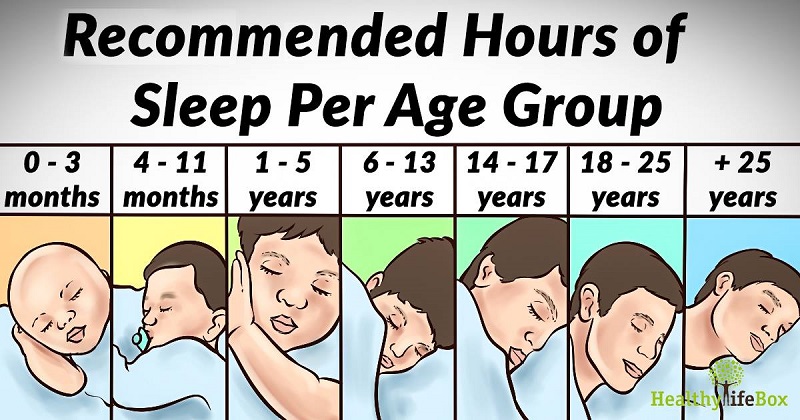Our overall health is determined by our night’s sleep to a high extent, as it needs this time to rest and restore its functions.
Therefore, insomnia and sleep deprivation lead to numerous ailments and health issues. The quality of the sleep affects our energy throughout the entire day and has its consequences on our health and wellbeing.
Sleep disorders can be a result of various factors, mainly stress and modern technology. Namely, stress stimulates the cortisol production, and when its levels are elevated, one experiences sickness, sleep disorders, and discomfort.
Moreover, modern gadgets emit light which blocks the melatonin production, causing unhealthy sleeping patterns. These, in turn, lead to appetite loss, fatigue, inability to concentrate, decide, and think clearly.
Countless studies have confirmed the link between sleep deprivation and health issues.
The National Sleep Foundation maintains that the recommended number of sleeping hours depends on the age factor.
People who sleep less than 5 hours are at an increased risk of heart diseases, while those who sleep less than 7 hours are more likely to develop diabetes and gain weight.
Charles Czeisler, a professor at Harvard University, with a team of experts, conducted a research, which involved many studies in the period between 2004 and 2014.
They analyzed the effects of sleep on overall health and intended to find out the adequate number of sleeping hours for every age group.
These are their findings:
- Newborn (0-3 months) — 14-17 hours.
- Babies (4-11 months) — 12-15 hours.
- Children (1-2 years) — 11-14 hours.
- Preschool (3-5 years) — 10-13 hours.
- School Age (6-13 years) — 9-11 hours.
- Teens (14-17 years) — 8-10 hours.
- Youth (18-25 years) — 7-9 hours.
- Adults (26-64 years) — 7-9 hours.
- Seniors (over 65 years) — 7-8 hours.
Therefore, make sure you sleep well every night and treat any sleep disorder on time, in order to provide the needed rest for the body and thus prevent various health issues.
Source: www.myhealthylifeguide.net
